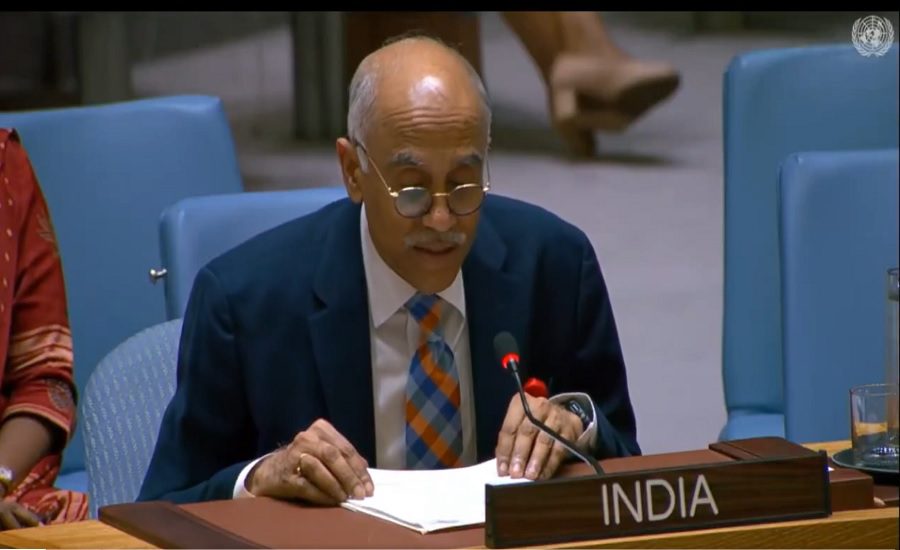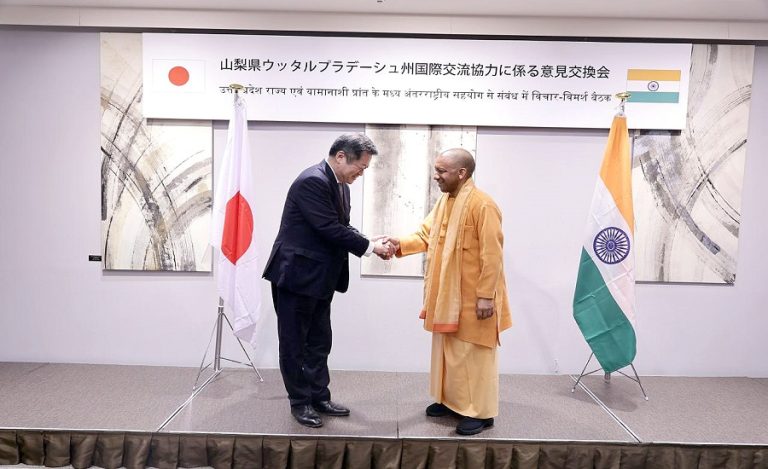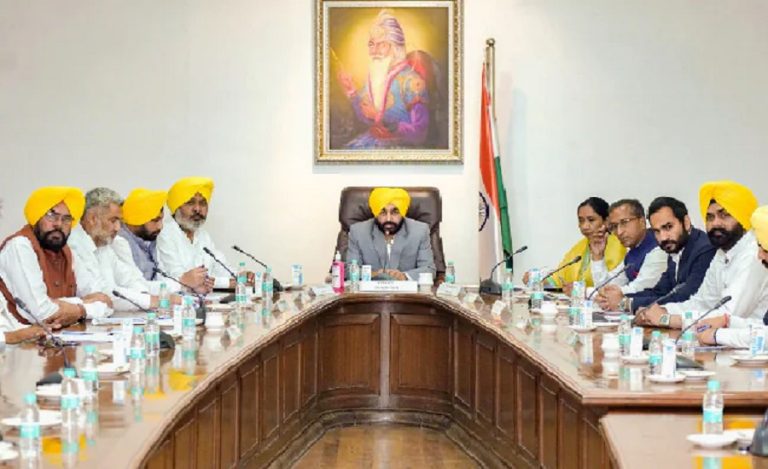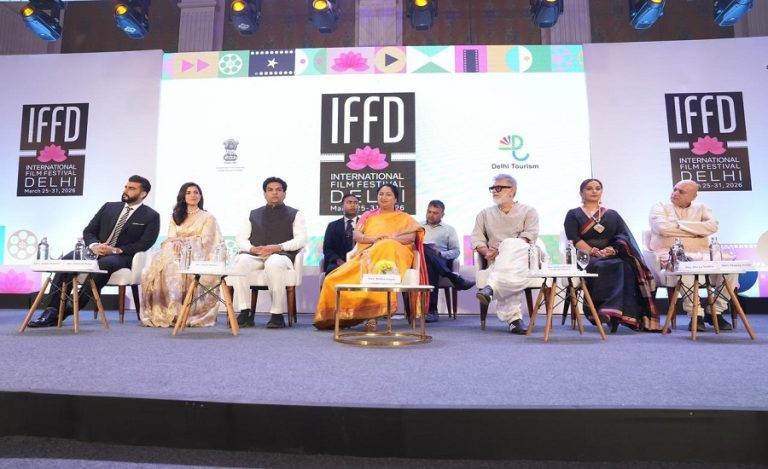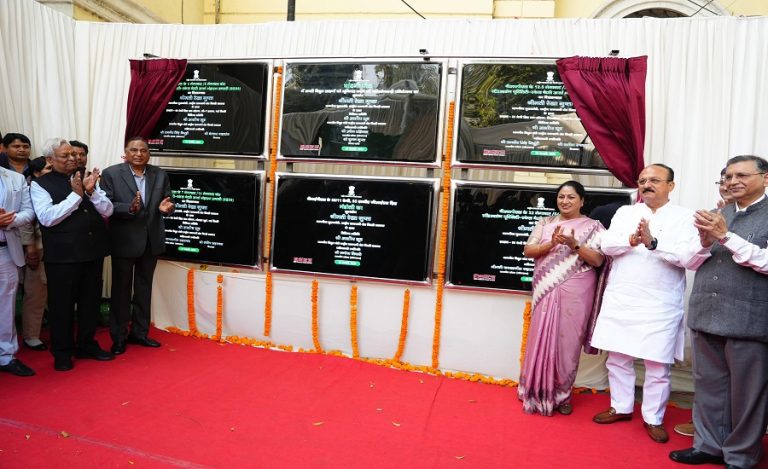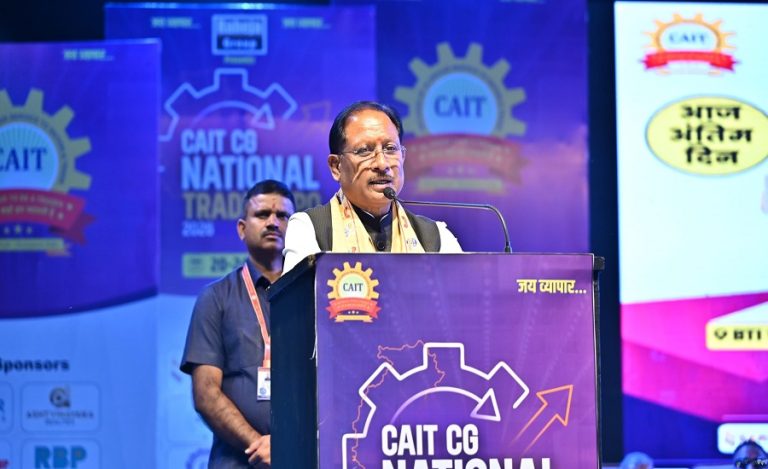New York: In a powerful rebuttal at the United Nations Security Council (UNSC), India condemned Pakistan’s attempts to raise the Kashmir issue by reminding the global community of Pakistan’s brutal past – specifically the mass rape of 400,000 women during Operation Searchlight in 1971.
India’s Permanent Representative to the UN, Ambassador Parvathaneni Harish, an Indian Foreign Service (IFS) officer of 1990 batch, forcefully countered Pakistan’s accusations during a UNSC session focused on Women, Peace, and Security, branding Islamabad’s claims as “exaggeration and propaganda.”
Who Is Parvathaneni Harish?
India’s Seasoned Diplomat at the UN
Ambassador Harish, who assumed office as India’s Permanent Representative to the United Nations in New York on 1 September 2024, is a seasoned diplomat from the 1990 batch of the Indian Foreign Service (IFS).
A gold medalist in mechanical engineering from Osmania University, Harish also holds a degree from IIM Calcutta and studied Arabic at the American University in Cairo, graduating with distinction.
His previous roles include –
- Ambassador to Germany (2021–2024)
- Ambassador to Vietnam (2016–2019), where he helped upgrade ties to a Comprehensive Strategic Partnership
- India’s Consul General in Houston (2012–2016)
- Officer on Special Duty to Vice President Hamid Ansari (2007–2012)
IFS Harish has also served in Egypt, Saudi Arabia, and with the Palestinian Authority, and worked in the MEA’s East Asia and External Publicity divisions.
At the UN, Mr Harish has established himself as a forthright and articulate representative, often calling out hypocrisy and defending India’s global stance with facts and history.
Pakistan Attempts to Rake Up Kashmir – India Fires Back
The exchange began when Pakistan’s representative, Saima Saleem, alleged that women in Jammu and Kashmir were victims of sexual violence and human rights violations by Indian forces. Responding firmly, Ambassador Harish dismissed the allegations as baseless and misleading, asserting that Pakistan was attempting to divert attention from its own deeply troubling record.
“Our record on women, peace, and security is impeccable and unblemished,” Harish said. “A country that bombs its own people and commits systematic genocide can only resort to exaggeration and propaganda to divert attention.”
This pointed remark came in reference to a recent airstrike by Pakistan in Khyber Pakhtunkhwa, where 30 civilians, including children, were reportedly killed.
India Highlights Operation Searchlight: The Forgotten Genocide
In a scathing reminder of history, Harish invoked the 1971 genocide in East Pakistan (now Bangladesh) during Operation Searchlight, a military operation led by General Tikka Khan, infamously known as the “Butcher of Bengal.”
“This is the same country which carried out Operation Searchlight in 1971 and sanctioned a systematic plan of mass rape against 4 lakh women by its army,” said Mr Harish.
He reminded the UNSC that the violence, rape, and mass killings by the Pakistani Army during Operation Searchlight led directly to the Bangladesh Liberation War, culminating in Pakistan’s defeat in Dhaka and the creation of Bangladesh.
“The international community is watching Pakistan’s propaganda. The truth is already known,” IFS Harish added.
Global Silence on 1971 Atrocities
While Operation Searchlight remains one of the darkest and underreported chapters in South Asian history, India’s latest intervention at the UNSC has reignited discussions about the systematic mass violence committed by the Pakistani Army.
International human rights organizations and academic historians have estimated that hundreds of thousands of Bengalis were killed, and 400,000 women were subjected to mass rape. The operation was a state-sponsored crackdown to suppress Bengali nationalism in then East Pakistan.
The Message to the World
India’s statement sends a clear message to the international community: Pakistan cannot be allowed to rewrite history while using platforms like the UNSC for propaganda.
By confronting Pakistan with its own record, India has sought to reposition the conversation on women’s rights and human security from allegations to evidence-based historical truth.
Text of my statement during the @UN Security Council Open Debate on Women, Peace and Security:https://t.co/eLHvPVG1oo https://t.co/qNhZgiKkKv
— Parvathaneni Harish (@AmbHarishP) October 6, 2025

